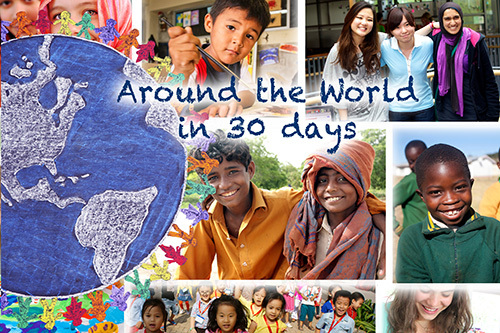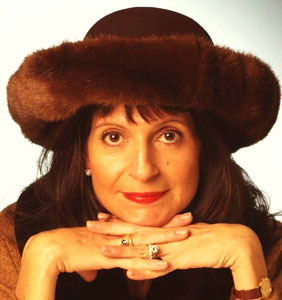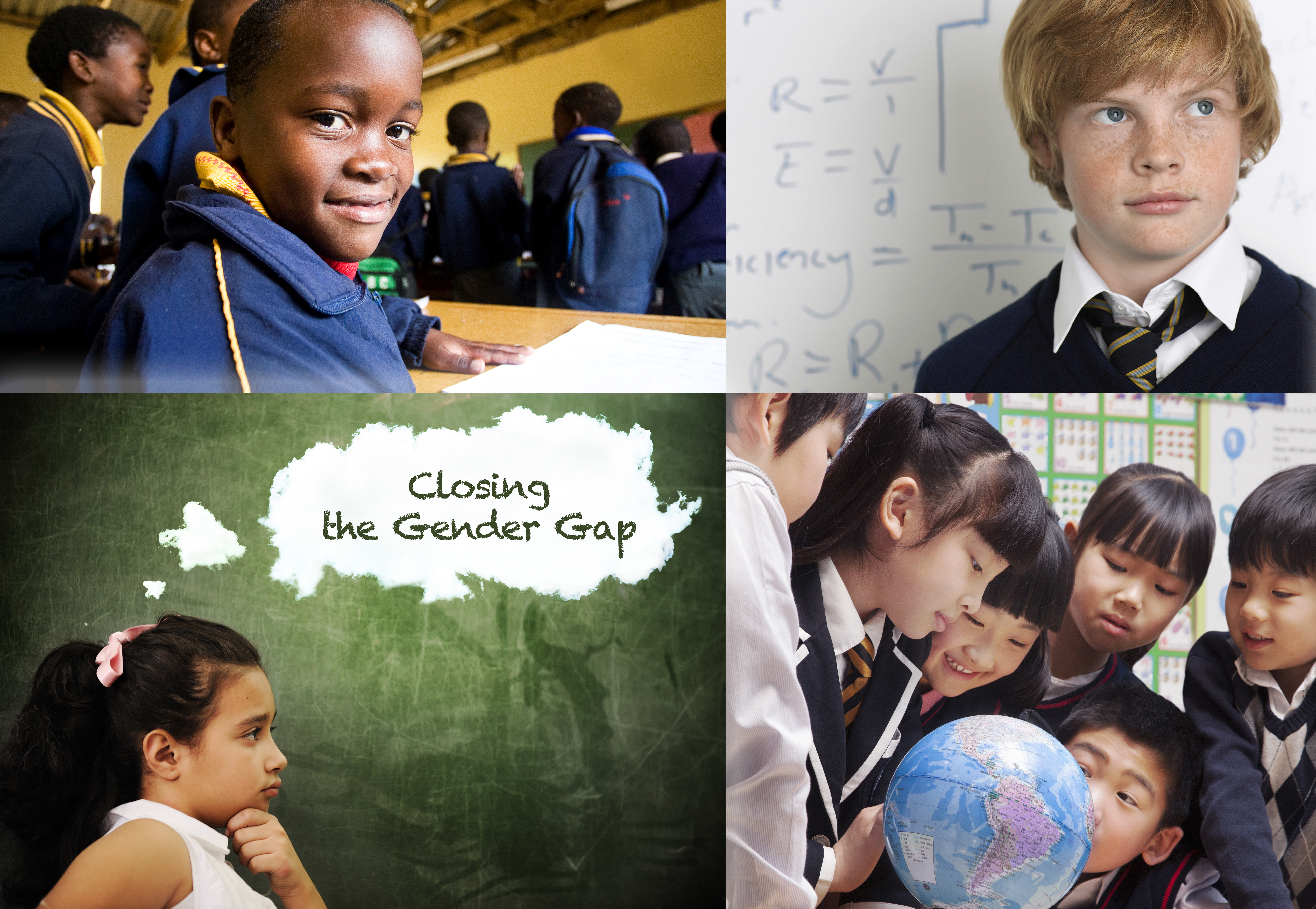
From Education Fast Forward’s 17th debate in partnership with UNESCO at Mobile Learning Week in Paris, to our Twitter Chat on Multiculturalism in partnership with Edmodo, to interviewing the Top 10 finalists for the Varkey Foundation’s Global Teacher Prize, to exploring cutting edge technology that’s changing music education, to welcoming the voices of new experts to our global teacher blogging team, it was a stimulating and revealing month around the world.
“Innovation and Quality: Two Sides of the Same Coin?” was the title of Education Fast Forward’s 17th global debate at Mobile Learning Week in Paris in partnership with UNESCO. The debate brought together thought leaders from all over the globe to discuss the latest news and views on the impact of mobile technology in life-long learning. “Technology has the potential to unlock new approaches to assessment that will change what and how we teach,” said Jim Wynn, who noted that “the current curriculum shape and form that we see around the world with subjects taught in silos has to change.” Lord Jim Knight noted that the most convincing way he has seen technology utilized in education is flipped learning. “This technique should see more teachers pushing learning content to pupils in advance of class, to then allow face to face time at school to be used more effectively to embed the learning,” állította.
When our present and our future is inevitably a highly interconnected world, competencies like global openness, átélés, tisztelet, adaptability and critical-thinking are no longer merely ‘helpful’ to students, they are essential for them to flourish. “Tanítás globális tájban – Figyelmes multikulturalizmus a mai osztályteremben” was the timely topic of our Twitter Chat hosted by Edmodo and ourselves which, not surprisingly, was trending on Twitter during the event. Kiemelt vendégek Dr. William Gaudelli, Jessica Kehayes, and Dana Mortenson joined teachers and twitter users from all over the world to share practices in fostering global competency. Key insights into the future of global education were offered, including one from Jessica, Executive Director at the Asia Society: “Minél jobban elősegíthetjük a megértést és a perspektíva-alkotást, és ösztönözze saját gondolkodásának magyarázatát, miközben tisztelettel hallgat másokat, annál több lehetőség van az új gondolkodás megjelenésére és a közösségek megerősödésére. A közösséggel való kapcsolatok építését korán el lehet kezdeni és el kell kezdeni, társadalmunk minden tagjának fontos hangként való népszerűsítése, including our youngest.”
Narrowed down from 8,000 nominations in 148 a világ más országaiban, the Varkey Foundation’s Global Tanár Díj 2016 came up with a list of ten finalists. Just prior to Pope Francis announcing Hanan Al Haroub the winner I had the honor to interview all the finalists. Aqeela Asifi, Ayub Mohamud, Colin Hegarty, Hanan Al Haroub, Joe Fatheree, Kazuya Takahashi, Michael Soskil, Richard Johnson, Maarit Rossi, and Robin Chaurasiya shared their perspectives with me on how to make teaching a more prestigious career. Hanan Al Haroub insisted that “…teachers are the real power in this world. They are the only ones who can change societies, the ones who can create productive and active generations…” Ezért, teachers should be treated with more respect and dignity. Nekünk kellene “provide salaries and conditions to entice bright, innovative/creative minds and lift the profile of the profession…” suggested Richard Johnson. The future of education may be grim in places where teachers are not valued as an integral part of a prosperous society. As Mike Soskil said, “Only when we treat teachers as the professionals that they are will we see the success that we desire in our schools.”
Craig Swann is the Founder and Chief Imagination Officer of Looplabs. Looplabs is a free, együttműködési, cloud-based music studio that lets anyone, függetlenül attól, hogy technikai készségek vagy képesség, könnyen, hogy, részvény, and discover music. While Looplabs is exciting for both amateur producers and music enthusiasts alike, it is also making waves in the education world. “Amely lehetővé teszi a tanár, hogy hozzanak létre egy projektet, majd hagyja, hogy minden diák kölcsönhatásban épít ki, hogy egy darab, but yet having them all connected at the same time, provides powerful ways to learn by doing it together.” Because Looplabs is designed to help beginners make music – “ez lehetővé teszi a könnyű, intuitív módon fedezhetik készítmény, to test, and try things…” – it makes for a wonderful tool to allow youth to discover their creative abilities. És, importantly for educators: ez ingyenes!
Ebben a hónapban, A Global Search for Education welcomed an expanded panel of experts as the new Top Global Teacher Bloggers. For their introductory collaboration we asked them a controversial yet essential question in global education: “Mi a legjobb példa láttál tanárok a nemek közötti különbségek az oktatásban?” Maarti Rossi explained that, “Fontos, hogy az iskolákban szándékosan keverjük össze a nemek a tantermekben…” It’s also essential to engender self-respect and the self-confidence in every student, regardless of gender. Miriam Mason-Sesay summarized this practice wonderfully: “The idea is to catch them young to teach them their value and make sure that negative messages never get a chance to take hold.” Warren Sparrow identified the difficulties that many young boys have in education: “A furcsa jelenség Dél-Afrikában, hogy több fiú, mint lány, az általános iskolában, but this gets reversed in high school and tertiary institutions.” Richard Wells suggested that this can be remedied by “tükrözött tanítás vagy a projekt-alapú tanulás. Ide kapcsolódik a fiúk kelljen csinálni inkább befogadó. Most boys need to be active learners.”
Our thanks to all our friends and supporters around the world.
(Az összes kép jóvoltából CMRubinWorld)


Csatlakozz hozzám és világszerte elismert szellemi vezetők többek között Sir Michael Barber (UK), DR. Michael blokk (Az US), DR. Leon Botstein (Az US), Professzor Clay Christensen (Az US), DR. Linda Darling-Hammond (Az US), DR. MadhavChavan (India), Professzor Michael Fullan (Kanada), Professzor Howard Gardner (Az US), Professzor Andy Hargreaves (Az US), Professzor Yvonne Hellman (Hollandiában), Professzor Kristin Helstad (Norvégia), Jean Hendrickson (Az US), Professzor Rose Hipkins (Új-Zéland), Professzor Cornelia Hoogland (Kanada), Tisztelt Jeff Johnson (Kanada), Mrs. Chantal Kaufmann (Belgium), DR. EijaKauppinen (Finnország), Államtitkár TapioKosunen (Finnország), Professzor Dominique Lafontaine (Belgium), Professor Hugh Lauder (UK), Lord Ken Macdonald (UK), Professor Geoff Masters (Ausztrália), Professzor Barry McGaw (Ausztrália), Shiv Nadar (India), Professzor R. Natarajan (India), DR. PAK NG (Szingapúr), DR. Denise Pope (US), Sridhar Rajagopalan (India), DR. Diane Ravitch (Az US), Richard Wilson Riley (Az US), Sir Ken Robinson (UK), Professzor Pasi Sahlberg (Finnország), Professzor Manabu Sato (Japán), Andreas Schleicher (PISA, OECD), DR. Anthony Seldon (UK), DR. David Shaffer (Az US), DR. Kirsten Magával ragadó Are (Norvégia), Chancellor Stephen Spahn (Az US), Yves Theze (LyceeFrancais számú amerikai egyesült államokbeli), Professor Charles Ungerleider (Kanada), Professzor Tony Wagner (Az US), Sir David Watson (UK), Professzor Dylan Wiliam (UK), DR. Mark Wormald (UK), Professzor Theo Wubbels (Hollandiában), Professzor Michael Young (UK), és professzor Minxuan Zhang (Kína) mivel azok feltárása a nagy kép oktatási kérdés, hogy minden nemzet ma szembesül.
A Global Search Oktatási közösségi oldal
C. M. Rubin a szerző két legolvasottabb internetes sorozat, amely megkapta a 2011 Upton Sinclair díjat, “A Global Search for Education” és “Hogyan fogjuk olvasása?” Ő a szerzője a három bestseller könyv, Beleértve The Real Alice Csodaországban, a kiadó CMRubinWorld, és egy Disruptor Alapítvány ösztöndíjasa.
Kövesse C. M. Rubin on Twitter: www.twitter.com/@cmrubinworld





Legutóbbi hozzászólások